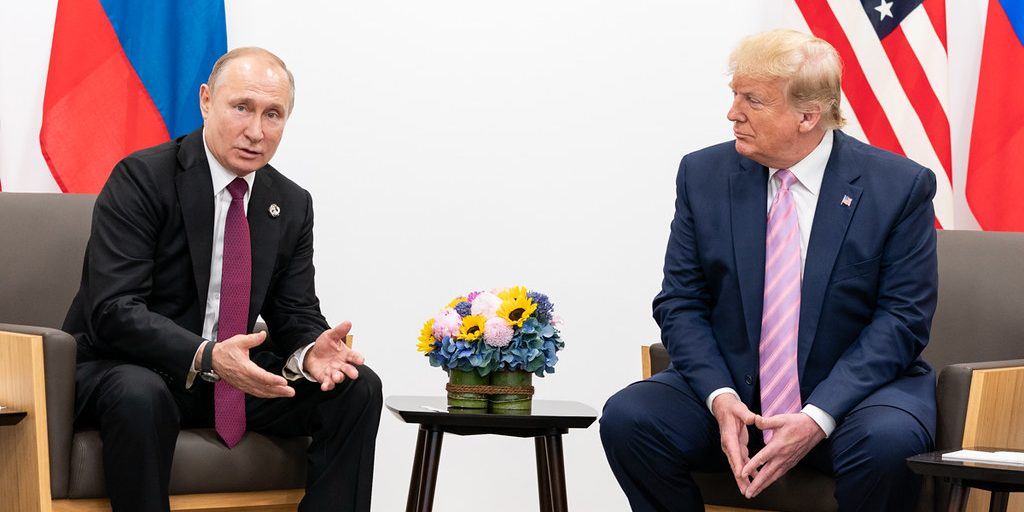Trump and his whooshing deadlines

LONDON, U.K.—“I love deadlines,” said Douglas Adams, author of The Hitchhiker’s Guide to the Galaxy. “I like the whooshing sound they make as they fly by.” United States President Donald Trump sets deadlines for more complicated reasons that purport to be tactical, but he, too, is addicted to the whooshing sound they make when he breaks them.
His latest display of disdain for the deadlines he sets himself began in mid-July when he gave Russia a 50-day deadline to agree to a ceasefire in its war against Ukraine. A week later, in an apparent fit of temper over President Vladimir Putin’s relentless nightly attacks on Ukrainian cities, Trump moved the deadline up by a month to Aug. 8.
Russia’s penalty for missing that deadline was allegedly going to be American “secondary tariffs” against other countries that continue to buy Russian oil, notably China, India, and Turkey. “I used trade for a lot of things, but it’s great for settling wars,” Trump boasted—only to discover, not for the first time, that his intended targets were able to push back.
Trump declared, again before the actual deadline rolled around, that India’s new tariff would be 50 per cent, not 25 per cent, if it didn’t stop buying heavily discounted Russian oil. Prime Minister Narendra Modi immediately declared that he was ready to “pay a huge price” rather than let the U.S. dictate India’s trade policies—and Trump didn’t even try it on with China or Turkey.
So, with no leverage in Moscow, Trump’s deadline for a Russian ceasefire passed unmentioned. Instead, he sent his favourite emissary, real estate developer Steve Witkoff, to make a new offer: a one-on-one Aug. 15 meeting between Trump and Putin in which the two men would make a deal without the Ukrainians, the European NATO countries, or anybody else present.
Putin jumped at the chance as it will be his first face-to-face meeting with a U.S. president since 2021. (He was being boycotted because of his invasion of Ukraine, but this is presumably one of Russia’s rewards for agreeing to a “summit.”) However, what Trump hopes to get out of it is less obvious.
Although Trump is very much in thrall to Putin, whom he mistakenly believes to be his personal friend, he knows that a full Russian conquest of Ukraine would not look good on his record. His real goal is to win the Nobel Peace Prize in order to end the shame of having seen a Black American (Barack Obama) get one first. For that, Trump needs a longer-lasting “peace.”
This need not be a permanent peace settlement that includes an independent Ukraine. Trump really believes in “America First,” and Ukraine’s long-term fate is of no interest to him. But he must persuade Putin to accept only a partial victory now—and maybe final conquest later—in order to portray himself to the Norwegian Nobel Committee as a plausible “peacemaker.”
This explanation sounds so stupid and ridiculous that people have difficulty taking it seriously, but it does explain why Trump has tried so hard to bully first one side (Ukraine), then the other side (Russia), and now back to Ukraine, into signing that kind of nothing-settled ceasefire.
If you still question that analysis, consider the fact that Trump regularly indulges in extended public rants about the sheer injustice of Obama getting a Nobel Peace Prize and leaving him still without one.
However, there will probably not be a complete sell-out of Ukraine in Alaska for two reasons. The first is that Putin—rightly or wrongly—is convinced that he is now winning the war by sheer weight of numbers, and that it is only a matter of time until Ukraine collapses. In that case, why would he now trim his maximal aspirations for the sake of a ceasefire?
The other reason to assume that the Alaskan summit is unlikely to end the war is the fact that if Trump does completely sell out Ukraine, the Ukrainians will go on fighting anyway. They would be fighting at a worse disadvantage and facing a bigger likelihood of eventual conquest, but they know that wars can have unpredictable outcomes until the next-to-last moment.
And whatever happens, Trump will go on setting deadlines and then missing them. Just like he did in the real estate business.
Gwynne Dyer’s new book is Intervention Earth: Life-Saving Ideas from the World’s Climate Engineers. The previous book, The Shortest History of War, is also still available.
The Hill Times






 LICENSING
LICENSING PODCAST
PODCAST ALERTS
ALERTS


